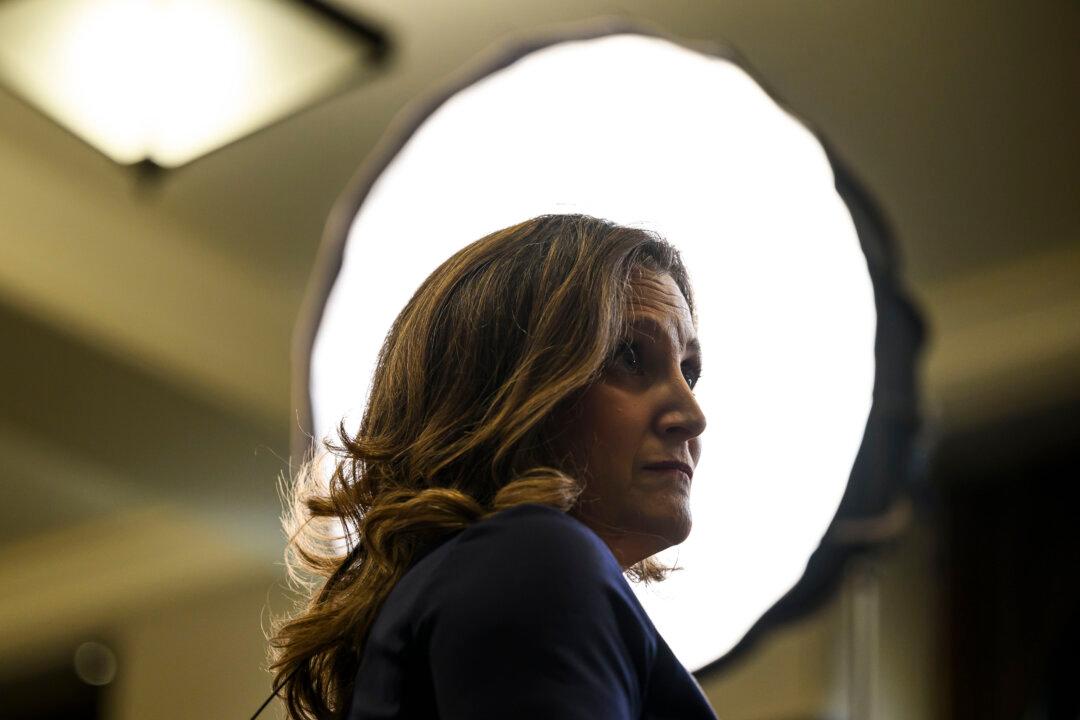Deputy Prime Minister Chrystia Freeland has raised concerns that MPs could be involved with foreign states trying to undermine Canada’s democracy, and says an internal review will be conducted.
Ms. Freeland was pressed repeatedly by reporters June 4 in relation to the recently released report by the National Security and Intelligence Committee of Parliamentarians (NSICOP).





